FC Energie Cottbus
FC Energie Cottbus
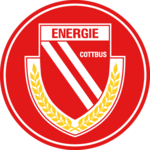 |
| Full name |
FC Energie Cottbus e. V. |
| Founded |
31 January 1966 |
| Ground |
Stadion der Freundschaft
(Capacity: 22,528) |
| Chairman |
Ulrich Lepsch |
| Manager |
Claus-Dieter Wollitz |
| League |
2. Bundesliga |
| 2009–10 |
9th – 2. Bundesliga |
|
|
|
FC Energie Cottbus is a German football club based in Cottbus, in the Lausitz region of Brandenburg. It was founded in 1963 as SC Cottbus in what was, at the time, East Germany. The club was quickly assisted by a wholesale transfer of players from BSG Aktivist Brieske-Ost ordered by the East German authorities, who often intervened in the business of the country's sports and football clubs for political reasons. Energie Cottbus was the only club from East Germany playing in the Bundesliga until 1. FC Nürnberg knocked the team out on 1 June 2009.
History
Predecessor sides
FC Energie Cottbus can trace its roots back to a predecessor side of FSV Glückauf Brieske-Senftenberg, a club founded by coal miners in 1919, in what was then called the town of Marga. FV Grube Marga, as the club was called back then, was active until 1924 when the miners left to form a new team called SV Sturm Grube Marga which was banned by the Nazi Party in 1933.
Life in the GDR
The club re-emerged after World War II in 1949 as BSG Franz Mehring Grube, becoming BSG Aktivist Brieske-Ost in 1950. The club was re-named SC Aktivist Brieske-Senftenberg in 1954 and played in the DDR-Oberliga generally earning mid-table results until calamitously falling all the way to the fourth tier Cottbus Bezirksliga in the early 1960s. The players of this side formed SC Energie Cottbus in 1963, whilst the reserve team merged back to BSG Aktivist Brieske-Ost to form BSG Aktivist Senftenberg. The club still exists as FSV Glückauf Brieske-Senftenberg today.
In the mid-60s a re-organization program by the regime led to the separation of football sides from sports clubs and the creation of BSG von Bodo Krautz under the patronage of a local coal mine. The football club went by that name only briefly and was quickly re-named BSG Energie in early 1966.
German reunification
The team took on the name FC Energie in 1990 at the time of German reunification.
After years as a II division or lower-table I division side in East Germany, Energie has emerged as one of the few former DDR sides to enjoy relative prosperity in a united Germany. After five seasons playing tier III football, they earned promotion to the 2. Bundesliga in 1997, winning the Regionalliga Nordost, and then played their way into the Bundesliga in 2000, where they managed a three year stay. A key player in their Bundesliga run was Vasile Miriuţă, an imaginative midfield player who played a big part in the team's promotion. After being relegated, Energie narrowly missed a prompt return to the top tier, losing out to 1. FSV Mainz 05 on goal differential. In season 2004–05 Energie struggled into both financial (reported debts of 4.5 million Euros) and sports problems: The season goal of promotion was missed by far - the club escaped the relegation to 3rd tier Regionalliga (football) by scoring one more goal (season overall) than SV Eintracht Trier 05 while having the same amount of points and goal differential. During season the manager and the chairman were replaced. Next season (2005–06) was a much more successful one - the club has returned to play in the First Division Bundesliga after winning promotion. The Bundesliga season 2006–07 resulted in a 13th place and a club record in Bundesliga season points (41).
Honours
Youth
- German Under 17 championship runners-up: 2004
Recent seasons
| Season |
Division |
Position |
| 1999–00 |
2. Bundesliga (II) |
3rd (promoted) |
| 2000–01 |
Bundesliga (I) |
14th |
| 2001–02 |
Bundesliga |
13th |
| 2002–03 |
Bundesliga |
18th (relegated) |
| 2003–04 |
2. Bundesliga (II) |
4th |
| 2004–05 |
2. Bundesliga |
14th |
| 2005–06 |
2. Bundesliga |
3rd (promoted) |
| 2006–07 |
Bundesliga (I) |
13th |
| 2007–08 |
Bundesliga |
14th |
| 2008–09 |
Bundesliga |
16th (relegated) |
| 2009–10 |
2. Bundesliga |
9th |
Current squad
As of 1 July 2010 [1] Note: Flags indicate national team as has been defined under FIFA eligibility rules. Players may hold more than one non-FIFA nationality.
| No. |
|
Position |
Player |
| 1 |
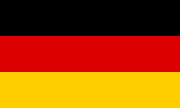 |
GK |
Thorsten Kirschbaum |
| 3 |
 |
DF |
Kolja Afriyie |
| 4 |
 |
DF |
Adam Straith |
| 5 |
 |
DF |
Robert Zickert |
| 6 |
 |
MF |
Nils Miatke |
| 7 |
 |
DF |
Takahito Soma |
| 8 |
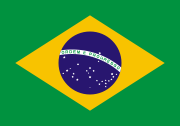 |
MF |
Roger |
| 9 |
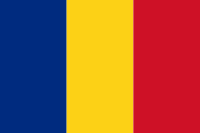 |
FW |
Emil Jula |
| 10 |
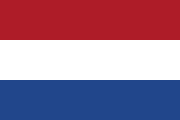 |
FW |
Jules Reimerink |
| 11 |
 |
MF |
Markus Obernosterer (on loan from FC Wacker Innsbruck) |
| 12 |
 |
GK |
René Renno |
| 13 |
 |
MF |
Julian Börner |
| 14 |
 |
FW |
Sergiu Radu |
| 15 |
 |
DF |
Alexander Bittroff |
|
|
| No. |
|
Position |
Player |
| 16 |
 |
MF |
Marco Kurth |
| 17 |
 |
DF |
Daniel Ziebig |
| 18 |
 |
MF |
Marc-André Kruska |
| 19 |
 |
FW |
Marc Zimmermann |
| 20 |
 |
MF |
Shao Jiayi |
| 21 |
 |
DF |
Uwe Hünemeier |
| 22 |
 |
MF |
Heiko Schwarz |
| 23 |
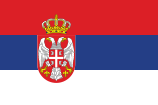 |
FW |
Velimir Jovanović |
| 25 |
 |
DF |
Markus Brzenska |
| 26 |
 |
FW |
Nils Petersen |
| 28 |
 |
MF |
Clemens Fandrich |
| 29 |
 |
MF |
Dennis Sørensen |
| 30 |
 |
GK |
Marvin Gladrow |
|
Notable players
- Past (and present) players who are the subjects of Wikipedia articles can be found here.
Team trivia
- On 6 April 2001, Energie became the first Bundesliga club to field a side made up of 11 foreign players.
- The players were Tomislav Piplica, Faruk Hujdurovic, Bruno Akrapovic (Bosnia), János Mátyus, Vasile Miriuţă (Hungary), Rudi Vata (Albania), Moussa Latoundji (Benin), Andrzej Kobylanski (Poland), Antun Labak (Croatia), Laurenţiu Reghecampf (Romania), and Franklin (Brazil). As a side note, even the three substitutes were foreigners, namely Johnny Rödlund from Sweden, Sabin Ilie from Romania and Witold Wawrzyczek from Poland [1].
- Energie often fielded 9 or 10 foreigners that season: German players appeared a total of just 83 times, with striker Sebastian Helbig as the leader with 28 [2].
- East German authorities had a penchant for tagging sports teams with the names of socialist heroes: Franz Mehring was a German socialist politician and journalist. He wrote a biography of Karl Marx and was a strong supporter of his ideas.
- German Chancellor Angela Merkel is an honorary member of the club.
References
External links
|
FC Energie Cottbus |
|
|
Club · Players · Managers · Stadium
|
|
|
2. Fußball-Bundesliga teams |
|
| 2010–11 teams |
|
|
| Former teams |
Arminia Hannover · Babelsberg · Bambek-Uhlenhorst · Baunatal · Bayer Leverkusen · Bayern Hof · Bayern Munich · Bayreuth · Blau-Weiß 1890 Berlin · Bocholt · Bonn · Borussia Dortmund · Borussia Mönchengladbach · Borussia Neunkirchen · Bremerhaven · Burghausen · Büstadt · Carl Zeiss Jena · Charlottenburg · Chemnitz · Darmstadt 98 · Dynamo Dresden · Eintracht Bad Kreuznach · Eintracht Braunschweig · Eintracht Frankfurt · Eintracht Trier · Eppingen · Erkenschwick · SC Freiburg · Freiburger FC · Fortuna Köln · Göttingen · Gütersloh · Hallescher FC · Hanau · Hannover 96 · OSV Hannover · Hansa Rostock · Havelse · Heilbronn · Hessen Kassel · Herford · Herne · Hoffenheim · Homburg · ESV Ingolstadt · MTV Ingolstadt · Kaiserslautern · Kickers Offenbach · Kickers Würzburg · Koblenz · Köln · Lok Leipzig · Lübeck · Mainz · Mannheim · Meppen · Mülheim · Nuremberg · Oldenburg · Olympia Wilhelmshaven · Pirmasens · Preußen Münster · Regensburg · Remscheid · Reutlingen · Röchling Völklingen · Rot Weiss Ahlen · Rot-Weiß Erfurt · Rot-Weiss Essen · Rot-Weiß Lüdenscheid · Saarbrücken · Salmrohr · Schalke 04 · Schwarz-Weiß Essen · Schweinfurt · Schwenningen · Spandau · Sportfreunde Siegen · St. Pauli · Stahl Brandenburg · Stuttgarter Kickers · Tennis Borussia Berlin · Uerdingen · Ulm · Union Solingen · Unterhaching · Viktoria Aschaffenburg · Viktoria Köln · Wacker Berlin · Waldhof Mannheim · Wanne Eickel · Wattenscheid 09 · Wehen Wiesbaden · Wolfsburg · Wormatia Worms · Wuppertal · Würzburg · Zwickau |
|
|
Regionalliga Nord (IV) 2010–11 clubs |
|
Eintracht Braunschweig II · Chemnitzer FC · Energie Cottbus II · Hallescher FC · Hamburger SV II · Hannover 96 II · TSV Havelse · Hertha BSC II · Holstein Kiel · RB Leipzig · VfB Lübeck · 1. FC Magdeburg · ZFC Meuselwitz · FC Oberneuland · VFC Plauen · Türkiyemspor Berlin · SV Wilhelmshaven · VfL Wolfsburg II
|
|
|
U19 Bundesliga North/Northeast 2010–11 clubs |
|
|
|
|
|
U17 Bundesliga North/Northeast 2008–09 clubs |
|
|
|
|
